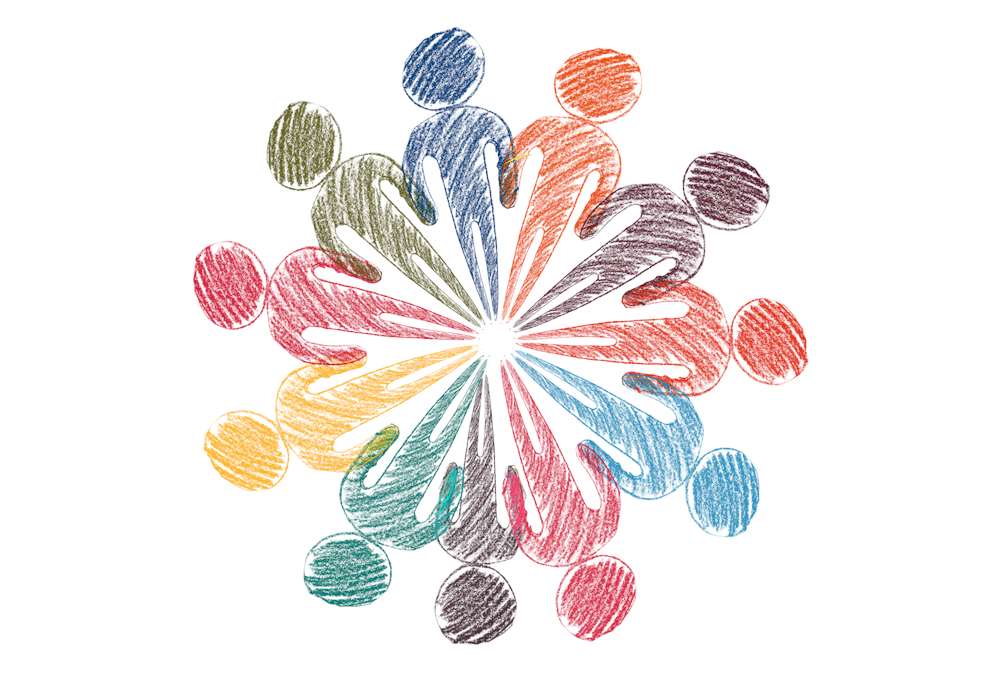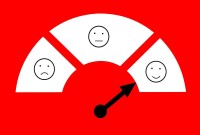- Home
- Business Processes
- Industry Knowledge
- Aerospace Industry
- Automotive Industry
- Banking Domain
- BFSI Industry
- Consumer/ FMCG Industry
- Chemicals Industry
- Engineering & Construction
- Energy Industry
- Education Domain
- Finance Domain
- Hospitality Domain
- Healthcare Industry
- Insurance Domain
- Retail Industry
- Travel and Tourism Domain
- Telecom Industry
- Leadership Skills
- eLearning
- Home
- Leadership
- Team Leadership
- Phases of Team Development
Phases of Team Development
All the teams are dynamic in nature and they take time to come together, they form, develop, and grow in stages, over a period of time. Teams go through five progressive stages: Forming, Storming, Norming, Performing and Adjourning. In this article, we want to introduce you to these stages of team development and certain strategies that you can use to help the team grow and develop in each of these stages.
Need for Understanding the Development Phases
Managers need to understand group behavior and team concepts as effective team building requires a manager to follow a systematic planning and implementation process. As a leader, you need to be flexible as the expectations from your role as a leader will change as the team passes through these various stages of development. In this article, we want to introduce you to these stages of team development and certain strategies that you can use to help the team grow and develop in each of these stages.
Leading successful teams is an art, and team leaders can face many challenges when trying to optimize team performance. Teams go through five progressive stages: Forming, Storming, Norming, Performing and Adjourning. Not all teams progress to the end stages. Some teams may be simply ineffective and might not get organized or cohesive enough to move beyond the Storming or Norming stages. Each stage of team development presents its own special challenges as the group is striving to work together successfully as a cohesive team. The leader can take specific actions at each stage of team development to support the team’s success in accomplishing the team mission. At each stage, the behavior of the leader must be adapted to the changing and developing needs of the group.
Whether you are a team member or team leader or just someone who is looking to develop his skills as a team leader, you need to know certain things about how teams function and what it takes to develop a high-performance team. In this and the subsequent articles on team development, you'll learn techniques for setting up successful teams that can be applied to a variety of team environments. We have already discussed the various benefits of building business teams and now we will discuss the importance of taking proactive measures to ensure a smooth transition during the initial phase of team formation and helping your team reach and sustain high performance as soon as possible.
The Five Stages of Team Development:
The five stages of team development are “Forming – Storming – Norming – Performing-Concluding”. These phases are all necessary and inevitable in order for the team to grow, to face up to challenges, to tackle problems, to find solutions, to plan work, and to deliver results. This model has become the basis for subsequent models. Let us learn the five stages briefly:
1. Forming:
This is the first stage of team development. In this stage, the members try to explore and understand the behavior of the team members. They make their efforts in understanding the expectations of the team members. At this stage, they are polite and try to find out how to fit into the team.
2. Storming:
In the second stage, members start competing for status, leadership, and control in the group. Individuals understand others' behavior and assert their role in the group. As a result inter-personal conflict starts. Members try to resolve the issues related to the task and working relations. They also resolve the issues related to the role of the individual in the group.
3. Norming:
The members start moving in a cohesive manner. They establish a balance among various conflicting forces. They develop group norms and consensus for the achievement of the group goal. At this stage, cooperative feelings develop among the team members.
4. Performing:
In this stage, the team makes effort for the performance of the task and accomplishment of objectives. The established pattern of relationships improves coordination and helps in resolving conflicts. Members trust each other and extend their full cooperation for the achievement of the group goal.
5. Adjourning:
As you must be aware that the team is formed for some purpose. When this purpose is fulfilled, the team may be adjourned. Thus, the breaking up of the team is referred to as adjournment.
How you can Make a Difference:
The Forming, Storming, Norming, Performing stages are seemingly obvious but are in fact difficult as they take their own course before the team actually becomes effective. There is a tendency in the participants wanting to move to the Performing Stage without passing through the first three stages. The Forming stage is relatively easy but as it establishes the foundation leader needs to be proactive to set the basics right. The Storming stage is difficult and many times becomes the cause of the team’s failure. Performing seems easy once the storming process is complete. To take your team to perform a stage as soon as possible, you will need to change your approach at each stage. Given below are the steps required to ensure that you are doing the right thing at each of the stages.
- Identify which stage of the team development your team is at. We have described behaviors expected from team and team members at each of the stages in subsequent articles to help you identify the stage from the descriptions given in the articles below.
- Identify how you can accelerate the process of moving the team towards the Performing Stage. Along with the descriptors of each stage we have also listed down various actions that you can take as a leader to help the team achieve that effectively. The table provided for each of the stages below helps you understand what to expect at each stage and your role as a leader at each stage. Use this tool to move the team forward.
- Once you understand these stages and the behaviors expected, schedule regular reviews of where your teams are and adjust your behavior and leadership approach to suit the stage your team has reached.
Target Audience:
These articles on Development Phases of Team will be useful for all levels of employees that participate, lead and manage teams, including team members, managers, team leaders, supervisors, directors, and group leaders. It is suitable for anyone wishing to develop and refine their leadership skills in a team environment.
Learning Objectives:
The learning objectives of this section are:
- Stages of Team Development: Be familiar with the Developmental Phases of a Team and recognize which one your team is in
- Sequence the stages of team development: Recognize and understand obstacles that hinder a team from performing to its full potential
- Strategies for Team Formation, Be able to utilize tools, tips, and techniques to improve team performance and achieve the goals that are set
- Strategies for leading a team through various stages of team development
- Choosing team members for a team and matching personal qualities that team members should have
- Establishing a foundation in Forming: Be able to work with team members to establish productive communication processes within the team
- Learning to manage team conflict through Storming: Promote interdependence within team members in order to utilize the talents, skills, and knowledge of each member
- Encouraging performance in Norming
- Attaining excellence in Performing
- Seeking closure in Concluding or Renewing
Related Links
You May Also Like
-
Many people think communication is easy. It is said that communication can never be a hundred percent complete. Many factors are involved in the process of communication and something can always go wrong with one or more of these. It becomes difficult and complex when we put barriers in communication. Recognize barriers to interpersonal communication and examine specific strategies for overcoming those barriers.
-
Authentic leadership is an approach to leadership that emphasizes building the leader's legitimacy through honest relationships with followers which value their input and are built on an ethical foundation. The authentic leader acts upon his or her values and beliefs, and inspires others to do the same, is committed to know and develop oneself. Are you committed to developing yourself; know your motivations and the purpose of your leadership? Read this article to know more about authentic leadership style and discovering your authentic self.
-
Teams are certainly very relevant and important elements in today’s high-performance organization but the important thing to remember as a leader is that we can’t simply rely on putting highly effective individuals together to make a highly effective team. Empowerment increases the effectiveness of the team and drives many intangible benefits both for the organization and the employees.
-
Narrative leadership is interpreted as the leader who aspires to construct leadership by telling stories. Leadership is a task of persuasion, of winning people’s minds and hearts. Storytelling is thus inherently suited for the task of leadership. Learn about the narrative leadership style and how to use this style to inspire and motivate followers or to manage change.
-
Laissez-faire is a style of leadership that affords the group members a great deal of independence. Tasks are delegated to the group members and they are responsible to see the project through to fruition. Research has shown that this style of leadership leads to the lowest levels of productivity. This article explains this style and covers the implications of having a hands-off approach and the situations where this style could be effective.
-
In today's innovation-driven economy, understanding how to generate great ideas has become an urgent managerial priority. Managers need to encourage and champion ideas and need to help their organizations incorporate diverse perspectives, which spur creative insights and facilitate creative collaboration by harnessing new technologies. Innovation is the embodiment, combination, and/or synthesis of knowledge in original, relevant, valued new products, processes, or services.
-
Share Information with Your Team
Willingness to share information is the most critical and the very first step in the Journey to employee empowerment and team development. People cannot make good technology or business decisions without information. They need to understand the purpose behind what they are doing and connect with the big picture. People with information feel the need to take the risk of making decisions that enable business growth.
-
Benefits of Teams in Workplace
The use of formal work teams is commonplace in modern organizations. But why we have teams? What are the benefits or advantages that teams provide for organizations and employees? Do we really need to adopt formal team structures and use team-building approaches in organizations? Read this article to explore and learn the benefits of having formal teams in organizations.
-
Recognizing Stress & its Sources
As an individual, you almost certainly know what stress feels like. Stressors are events or situations to which people must adjust. Stressors may be physical or psychological in nature. The level of severity of stress is determined not merely by exposure but the intensity, duration, and frequency of stressors. The sources of stress are many. They arise from multiple areas both with the individual and from the environment.
-
Facilitative Leadership is all about involving the employees in the decision-making process at all levels enhancing their sense of ownership, responsibility, and motivation. Facilitative leadership style uses a number of indirect communication patterns to help the group reach consensus and build commitment for the decision taken. To be effective in modern organizations, managers need to become facilitative leaders, learn what it means to be a one.
Explore Our Free Training Articles or
Sign Up to Start With Our eLearning Courses

About Us
Learning
© 2023 TechnoFunc, All Rights Reserved










